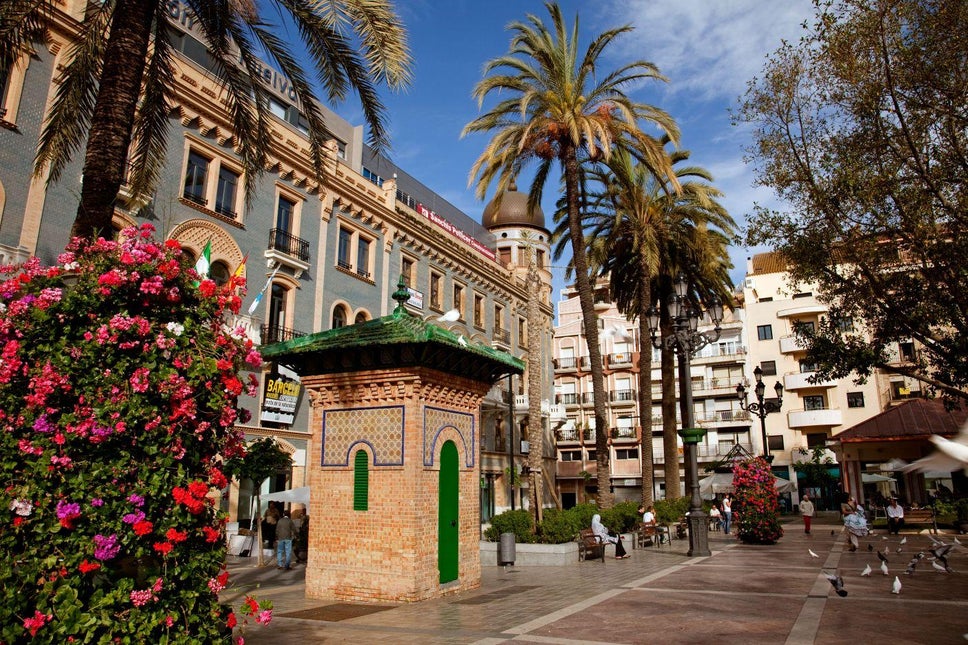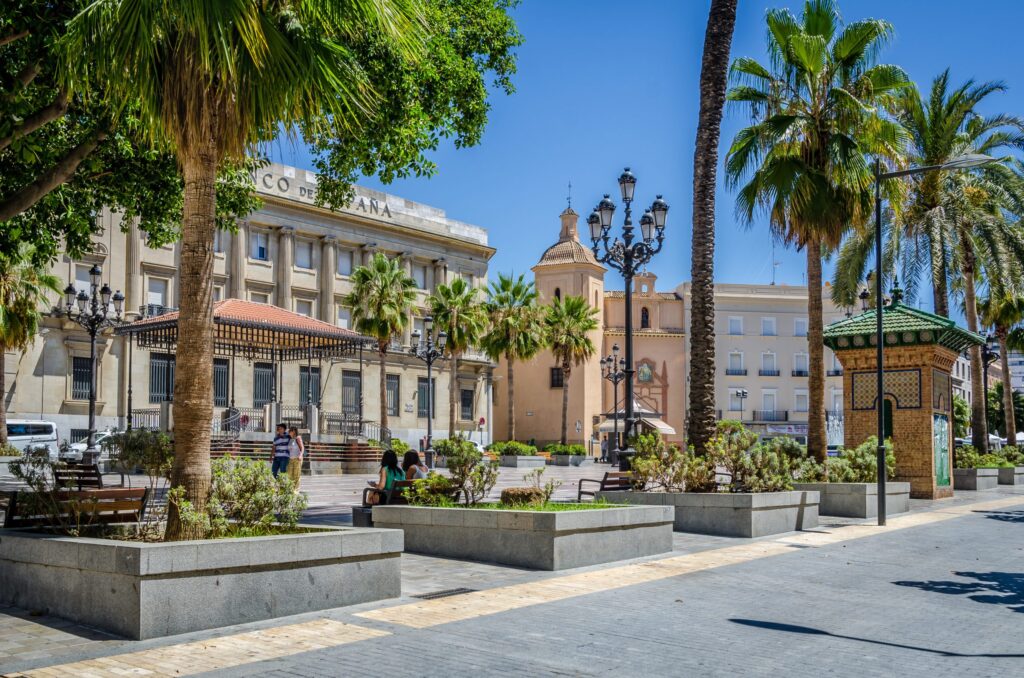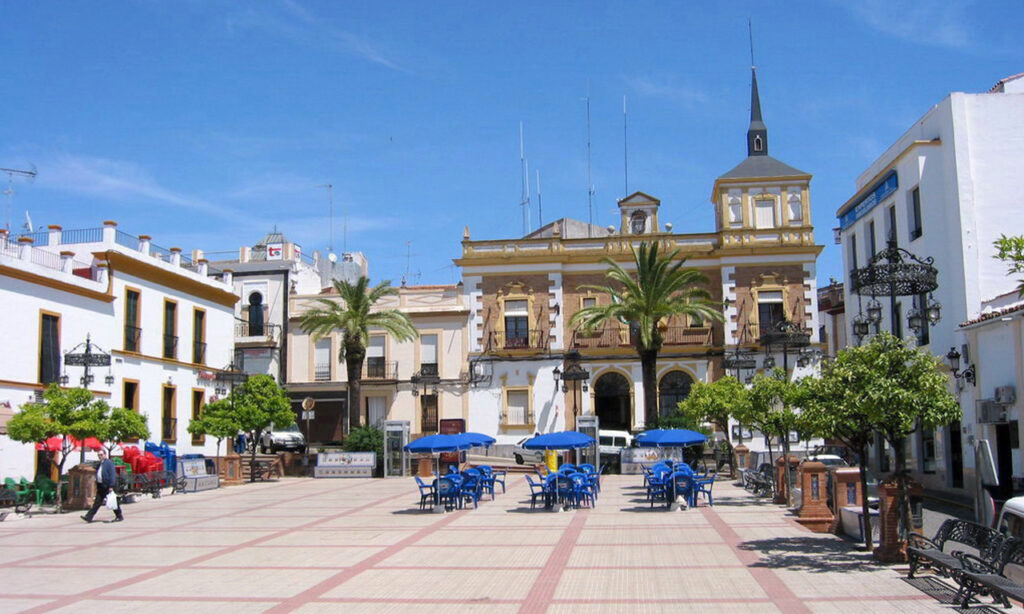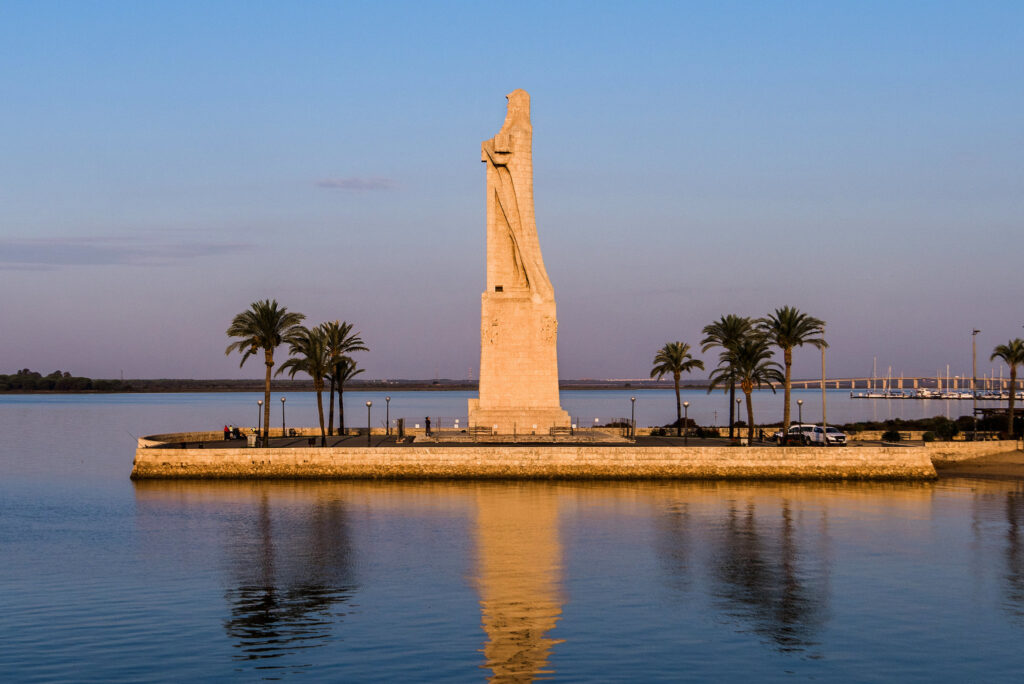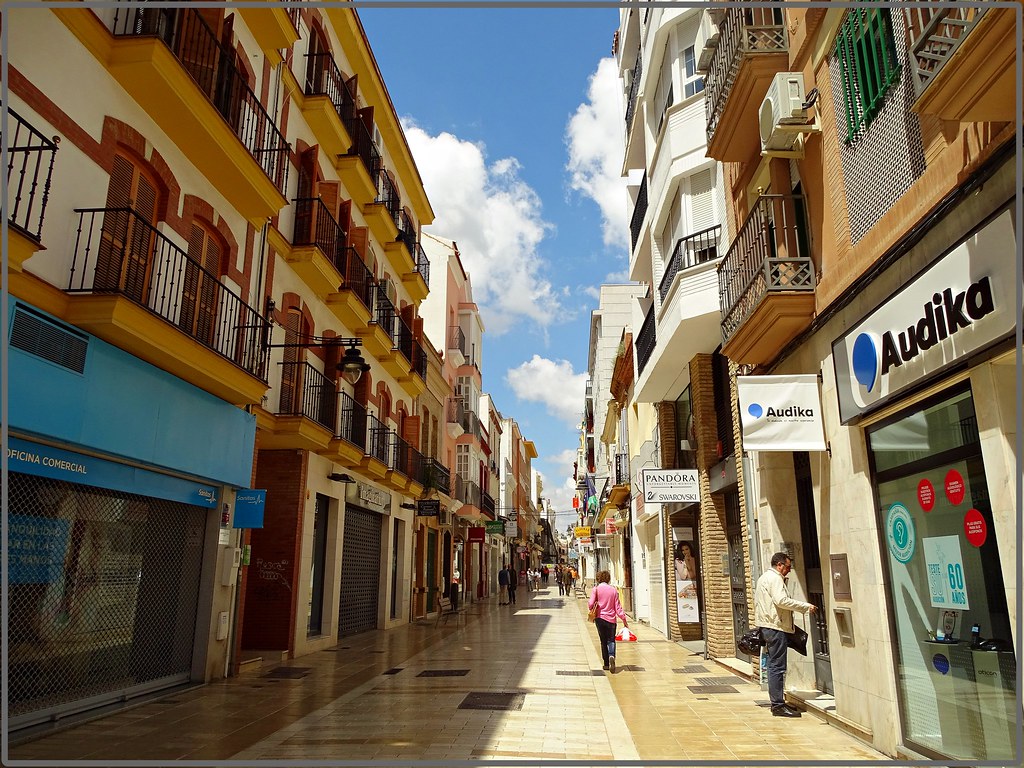Huelva is a city in southwestern Spain, the capital of the province of Huelva in the autonomous community of Andalusia. It is located along the Gulf of Cádiz coast, in the estuary formed by the confluence of the Odiel and Tinto rivers. According to the 2010 census, the city had a population of 149,410. Huelva is home to Recreativo de Huelva, the oldest football club in Spain.
It has been tentatively defended the existence of pre-Phoenician settlement on the current urban limits since circa 1250 BC, with Phoenicians establishing a stable colony roughly by the 9th century BC.
Artists
The most well-known artists in Huelva have been: the poet and winner of the Nobel Prize in Literature Juan Ramón Jiménez, the sculptor Antonio León Ortega, the writer Nicolas Tenorio Cerero and the painter Daniel Vázquez Díaz.
Other outstanding artists from Huelva include the painters José Caballero, Pedro Gómez y Gómez, Antonio Brunt, Mateo Orduña Castellano, Pablo Martínez Coto, Manuel Moreno Díaz, Juan Manuel Seisdedos Romero, Francisco Doménech, Esperanza Abot, José María Labrador, Sebastián García Vázquez, Pilar Barroso, Juan Carlos Castro Crespo, Lola Martín, Antonio Gómez Feu, Rafael Aguilera, and Florencio Aguilera Correa. Miguel Báez y Espuny, called el Litri, is a retired bullfighter very famous from Huelva, his son, named Miguel Báez Spínola, was also a very renowned bullfighter retired in 1999.
Events
- Carnaval, fiesta
- Festival de Cine Iberoamericano de Huelva
- Columbian Festivals, fiesta first week of August
- Fiestas de la Cinta, between 3–8 September
- San Sebastián, festival 20 January
- Semana Santa (Easter Week)
- Virgen de la Cinta, fiesta 8 September
- El Rocio Romeria pilgrimage, every seventh August, a statue of the Virgin of el Rocio travels at night from El Rocio to Almonte.

